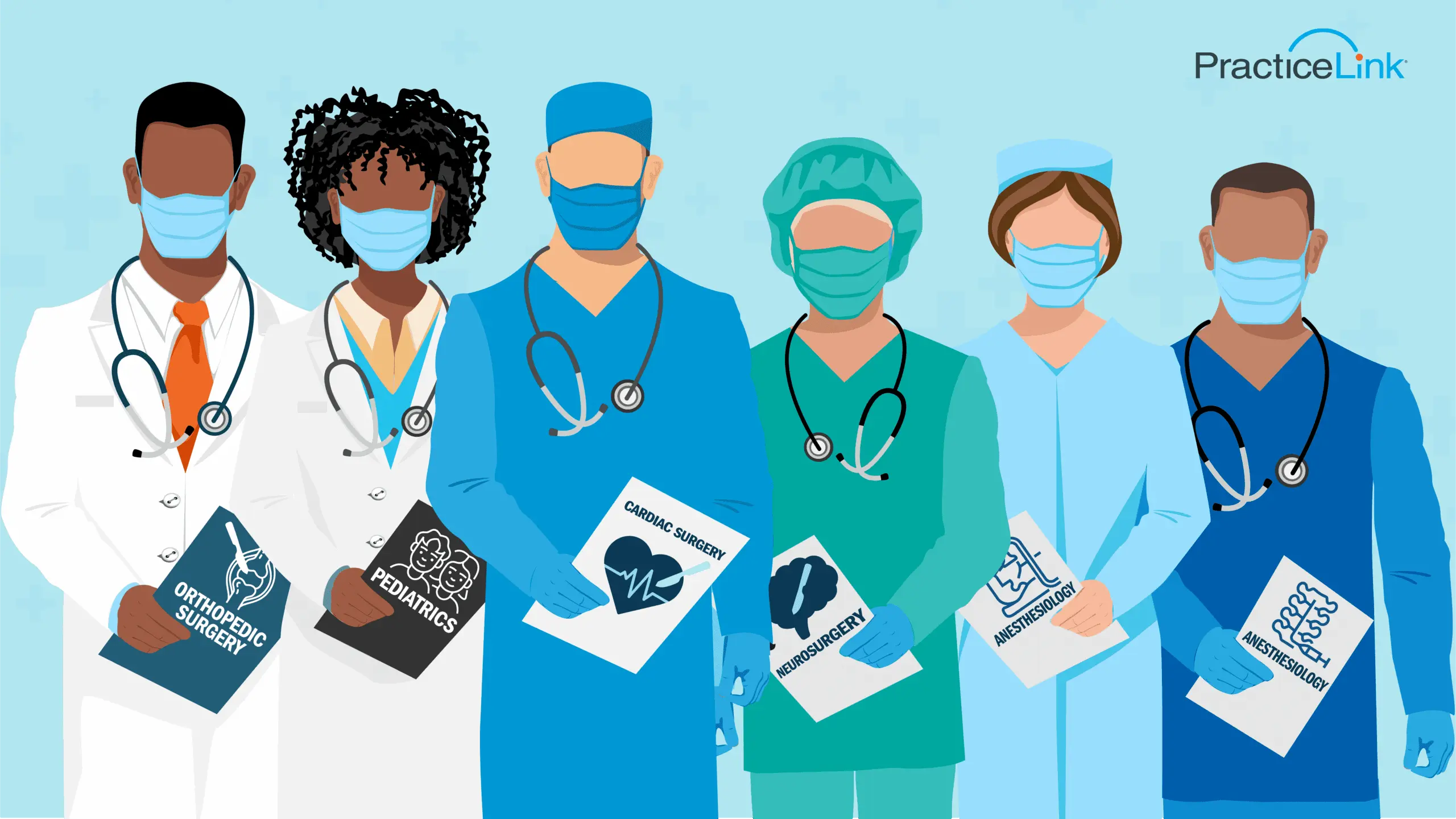Which specialty has the most difficult board exam?
By Megan Trippi November 18, 2025

Which specialty has the most difficult board exam?
Preparing for medical board exams is a universal challenge for physicians, but not all exams are created equal. Exams for some specialties are known for their extensive scope, complex material and rigorous testing formats. For those deep into medical board prep, understanding which specialty has the most difficult board exam can help you plan your study strategy more effectively.
While every exam demands focus and discipline, certain specialties consistently rank among the hardest specialty medical board exams in medicine, combining high expectations with intricate content and, in some cases, oral or performance-based components.
Which medical specialty is hardest?
Determining the “hardest” medical specialty depends on how you define difficulty. Some measure it by the amount of knowledge required, others by the length of training or intensity of clinical decision making. That said, many experts and residents agree on a few front runners.
Several specialties commonly among the top 10 hardest medical specialties:
- Neurosurgery is known for its long residency and steep learning curve and tests both endurance and precision.
- Orthopedic Surgery requires not only vast knowledge of musculoskeletal anatomy but also mastery of intricate procedures.
- Cardiology is one of the most data-intensive fields, demanding expertise in diagnostics, imaging and life-saving interventions.
- General Surgery is a broad specialty with demanding exams that assess hands-on skills and deep clinical understanding.
- Dermatopathology combines the disciplines of pathology and dermatology, making its exams highly specialized.
- Internal Medicine (ABIM) covers an enormous range of topics, making comprehensive study essential.
- Radiology tests detailed image interpretation and clinical application under strict time constraints.
- Anesthesiology requires sharp clinical judgment and knowledge across multiple medical disciplines.
- Emergency Medicine tests adaptability and decision making under pressure.
- Pediatrics involves broad, age-specific clinical understanding that demands both depth and versatility.
Each of these fields challenges test takers to synthesize complex information across multiple systems — a major reason why their board exams are often considered among the toughest in medicine.
Which specialty has the most difficult board exam?
When physicians debate which specialty has the most difficult board exam in the world, the conversation often centers on specialties that require both written and oral components. Surgical specialties, particularly neurosurgery and general surgery, frequently top the list.
The American Board of Neurological Surgery (ABNS) exam, for instance, is widely regarded as one of the most demanding medical board tests worldwide. It includes a comprehensive written qualifying exam followed by an oral certification exam that assesses a physician’s ability to reason through real-world surgical cases.
Similarly, the American Board of Surgery (ABS) exams are notoriously challenging. The oral component evaluates how well candidates can apply their knowledge under stress, simulating real patient scenarios and critical decisions.
Other tough contenders include dermatopathology and cardiothoracic surgery, both of which require extensive memorization, visual interpretation and analytical reasoning. Globally, exams in fields like oncology and neurology also rank highly for their complexity and breadth of material.
Ultimately, the “most difficult” board exam depends on your background and interests, but the consensus is surgery-based specialties and highly specialized disciplines often lead the pack.
Which medical board is the hardest?
When discussing how hard is the medical board exam, it’s important to recognize each board’s difficulty reflects the scope and precision of the specialty it represents. For example:
- The American Board of Internal Medicine (ABIM) has one of the broadest exams, covering everything from infectious diseases to endocrinology.
- The American Board of Pediatrics (ABP) emphasizes both memorization and clinical judgment.
- The American Board of Anesthesiology (ABA) is rigorous for its practical and cognitive components.
These exams often demand months of dedicated study and practice, with pass rates reflecting the challenge. Many boards report pass rates between 85% and 95%, but percentages can be lower for certain surgical or subspecialty certifications.
What makes these exams so difficult is not just the quantity of material but the depth of understanding required. A physician may need to recall guidelines, apply data and manage complex case scenarios—all while maintaining speed and accuracy under time pressure.
Which specialties have oral board exams?
One feature that separates the most intellectually challenging medical specialty exams from others is the inclusion of oral components. Unlike multiple-choice tests, oral boards measure how well physicians can think on their feet, demonstrating clinical reasoning, judgment and communication under pressure.
Some specialties with oral board requirements include:
- Surgery and subspecialties (General, Plastic, Neurosurgery, Cardiothoracic)
- Anesthesiology
- Emergency Medicine
- Otolaryngology (ENT)
- Obstetrics and Gynecology
The oral exam process can be intimidating. Candidates must walk through diagnostic steps, justify treatment plans and anticipate complications while being evaluated by a panel of board-certified examiners.
This format tests not only knowledge but also professionalism and composure—traits essential in high-stakes medical practice. That’s why many physicians consider these specialties to host some of the most rigorous and mentally demanding certification processes in all of medicine.
While all medical boards require mastery and perseverance, some set an exceptionally high bar. From neurosurgery to anesthesiology, some exams test the limits of intellectual endurance, technical knowledge and practical judgment.
No matter which path you choose, the key to success lies in preparation. Begin your journey with a solid medical board prep plan, focus on question-based learning and seek resources that mirror real exam conditions.
Ready to take the next step? Visit PracticeLink to access expert resources, study insights and career opportunities designed to support you every step of your medical journey.

